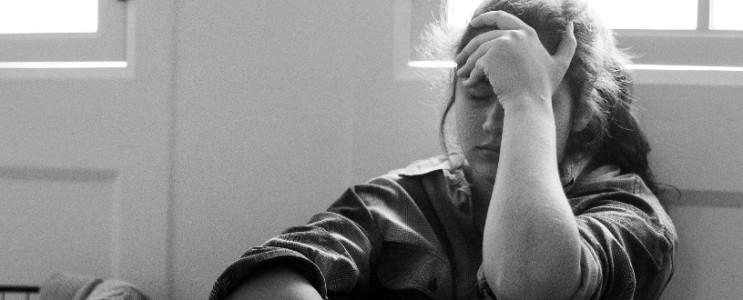
A Parent’s Guide to Understanding Teen Depression

Depression in teenagers often manifests as a negative perception of oneself. Commonly, depressed adolescents will feel that they are worthless, useless or a failure. The sense of not being good enough may be linked to the depressed teen's self-esteem and self-image issues. You may notice this when your teenager says things like:
- "I'm such an embarrassment"
- "I'm a terrible person"
- "Nobody likes me"
Signs of Teen Depression
Parents should be aware of the early warning signs of depression in their children. This includes changes in appetite, sleep habits or energy levels. Parents may also notice their child using alcohol or drugs to cope with negative feelings, withdrawing from friends and family members, losing interest in activities they once enjoyed such as sports or hobbies, or even losing interest in schoolwork.
Parents should also watch for signs of anxiety and irritability because these are common symptoms when a teen is depressed. Teens who suffer from depression may become easily frustrated over everyday tasks like homework assignments or getting ready for school in the morning. They might even lash out at friends and family members without provocation just because they feel overwhelmed by their feelings of sadness, anger or hopelessness.
According to the American Academy of Child & Adolescent Psychiatry (AACAP), irritability can be a sign of adult depression as well as teen depression. However, this is not common in adults; it's a more prominent indicator in teenagers than it is for their older counterparts.
A common misconception about depression is that it's always accompanied by sadness or crying; however, this isn't always the case. Sometimes people with clinical-level issues may experience symptoms such as apathy rather than unhappiness—and even if someone does feel sad during an episode, they might not show physical signs like crying or sobbing.
Depression can cause a teenager to feel empty inside. Depressed teenagers may feel like they have no purpose or reason to live, and that they are a burden on others. They may also feel unloved or unwanted by their family and friends.
Teens Who Withdraw
If your teenager is depressed, it’s important to understand that he or she may withdraw from relationships. They may not want to be around friends and family members. This is because socialising can be difficult for someone who is depressed. They often feel too tired or unmotivated to meet up with their peers, and even if they do want to hang out with others, it might be too hard for them to put on a happy face. As such, they may avoid going out with friends or participating in group activities like school dances or sports games.
If you're concerned about your teen, it's important to talk openly with them about their feelings so they can get the help they need.
Depression Teenagers Vs. Adults
The symptoms of depression in teenagers are different from those of adults. Depression in teenagers is characterised by a change in moods, irritability, and emotional outbursts, whereas the symptoms of depression in adults include a lack of energy and motivation along with changes in appetite or sleep patterns. Additionally, while teenage depression can be caused by genetics or family history (just like adult depression), there are other factors that may contribute to it as well such as teenagers who abuse drugs or alcohol or teenagers who have had traumatic experiences such as physical or sexual abuse.
Teenage Depression & Suicide
Some depressed teenagers who are suicidal may talk about their feelings as a way to get attention, while others may think that killing themselves will get them out of an uncomfortable situation or make people stop asking them why they’re not happy anymore.
Teenage Depression & Bullying
The National Institute of Mental Health reports that bullying can lead to depression. This isn't surprising because being bullied can be emotionally devastating and make you feel worthless, unloved and socially isolated.
Bullied teens are more likely to consider or attempt suicide than those who aren't bullied; they're also more likely to have problems with self-harm (like cutting) later on in life. Bullied teens often withdraw from social activities because they don't want their peers to know about their experiences with bullying. Being afraid of going to school every day (or even just a few days per week) means that your child won't be able to focus on learning new things - which is part of what makes school so important for growing up healthy!
How Can Parents Help Their Depressed Teenage Child?
Encourage your teen to seek professional help for the first time ever. It's common for a teenager to resist treatment, but it's also important that they get help before their depression gets worse. If a family member or friend recommends a therapist, call them and ask if they can recommend someone who specialises in youth depression and anxiety.
If a school counsellor or teacher suggests therapy (they often do), try to find out which therapists they work with and ask them about what happened with other teens they've sent there—the more information you have about potential doctors/therapists, the easier it will be for you to make an informed decision on which one is best suited for your child's needs.
If your child has already been talking about suicide, take these concerns seriously and don't wait until tomorrow; contact someone now!
We hope that this information will help parents of depressed teenagers to understand more about what their children are going through. I know it can be hard, but we need to keep trying to help ourselves and our children get better.
Articles
Build your awareness and get inspired with our researched articles on how you can strengthen your well-being
Popular Topics
An OTP has been sent to the email address
provided.
Please check your Inbox and Spam folders.

What Would You Like to Speak with a Specialist About?
Mental Fitness Journey starts Now!
Chearful Connects you with Top-tier Qualified Wellness specialists for the Price of a cup of Coffee!

Next Steps
- A Client Team member will reach out to you to schedule a session with the most suitable specialist.
- You will receive an email with a 10% Discount Code* for your 1st session.
- We invite you to Explore the Platform & Sign Up today! *Upto a maximum of $10 discount on a session purchased



.jpg)
 2128 Read
2128 Read



.jpg)






















